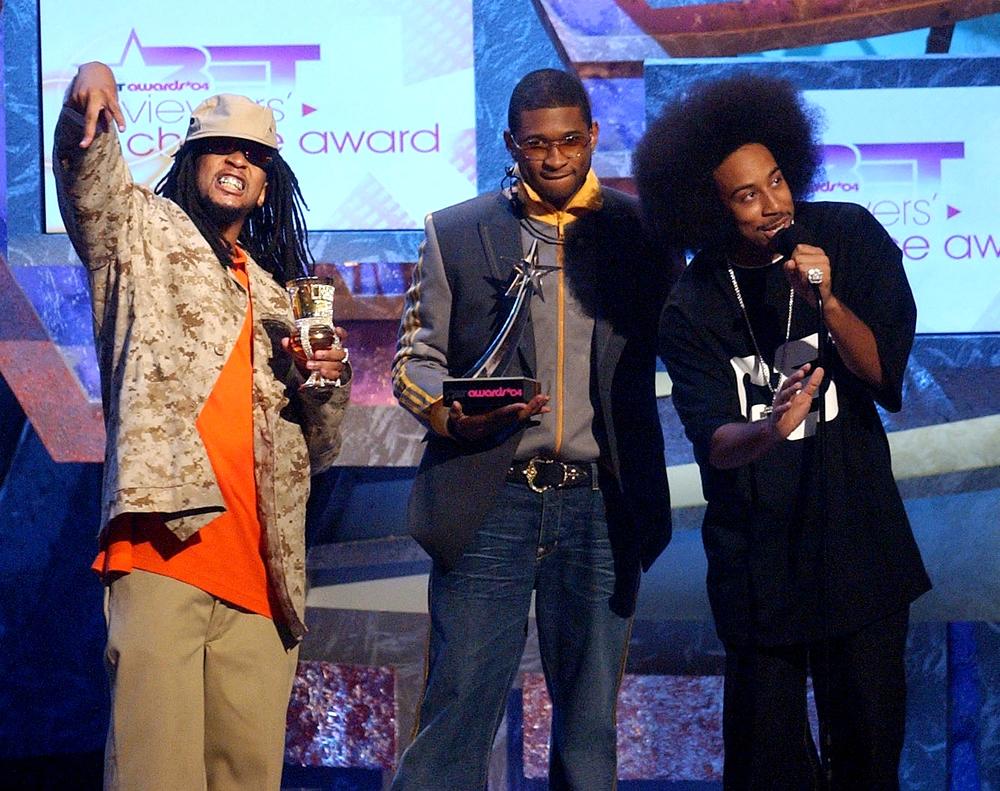Section Branding
Header Content
A3C: A Musical Journey Through Atlanta's Hip-Hop History
Primary Content
Since hip-hop first got its start in 1973, two cities were the main players in driving its style and sound.
On the East Coast there was New York, and on the West Coast there was L.A.
Atlanta is now home to many of hip-hop’s current and former stars, making it the “third coast” in A3C’s “All Three Coasts” moniker.
Stephen Fowler takes listeners on a musical journey through Atlanta's hip-hop history.
As the East Coast-West Coast rivalry came to a head in 1995, a duo from Atlanta named OutKast managed to win Best New Rap Group at the Source Awards.
While the New York-heavy crowd booed, Andre 3000 grabbed the award and took the audience to task.
“I’m tired of folks, you know what I’m saying. The close-minded folks. It’s like we got a demo tape and don’t nobody want to hear it. But it’s like this: The South got something to say, that’s all I got to say.”
Hip-hop made its way in Atlanta before then, with artists like Kilo Ali, MC Shy-D and Raheem the Dream producing their own take on popular Miami bass music. And Arrested Development even won two Grammys in 1993 for their song “Tennessee.”
But it was OutKast’s album "southernplayalisticadillacmuzik" that brought the ATLien funk into the picture. Atlanta’s sound was in direct contrast with the gangsta rap of the day, pioneered by the West Coast’s Tupac and the East Coast’s Notorious B.I.G. After both stars were murdered within the next few years, it was time for the new sound of the city nicknamed the “Dirty South” to step up.
Atlanta found its footing over the next few years, when record labels like LaFace and So So Def perfected the success of funky, soulful hip-hop like OutKast and Goodie Mob. Mixing elements of hip-hop, R&B and pop, the Atlanta sound of the '90s began to dominate popular radio stations thanks to artists like TLC, Usher and Ciara.
Lil Jon and the East Side Boys kicked off the early 2000s by making the entire nation dance to Atlanta's music. They accomplished that thanks to a style called crunk, which features up-tempo, bass heavy music with party-heavy lyrics. This marked the beginning of Southern hip-hop becoming accepted into popular culture.
A prime example of that acceptance is the song “Yeah,” performed by Usher, Ludacris and Lil Jon. Not only did it win a Grammy for best collaboration, but it made it to the top of the charts in fourteen countries, including ranking number two on Billboard’s Hot 100 Decade chart.
In 2001, So So Def founder Jermaine Dupri and perennial hit-maker Ludacris invited the rest of the country to visit “where the players play,” whether it be Southwest Atlanta, Decatur, or any one of the endless strip clubs in the city. "Welcome to Atlanta" showed that when it came to hip-hop, Atlanta was not only on the map, but had a map worth learning for everyone else.
By the late 2000s, even the New York Times noted Atlanta had shifted from the margins to becoming hip-hop’s center of gravity thanks to a crop of homegrown artists like Gucci Mane whose songs kicked off a new era of rappers bragging about their wealth.
And with the rise of social media, Atlanta hip-hop was ripe to spread farther, faster and stronger than ever before.
Soulja Boy had the entire country trying to “Crank That” in 2007 with a song and dance that has been viewed a quarter of a billion times on YouTube, thanks in part to his strategy of uploading his own music to new sites with the files intentionally mislabeled as Michael Jackson, Justin Timberlake and even Beethoven.
Because of the internet and because of Atlanta artists constantly creating new forms, styles and sounds to express themselves, the city’s hip-hop influence and stature is the best it’s ever been.
You’d be hard pressed to find a popular song that hasn’t been performed or produced by an Atlanta artist, though this year’s hit is done by Brooklyn’s Desiigner, with lyrics, sound and a cadence that blatantly imitate one of Atlanta’s superstar performers, Future.
Desiigner, by the way, has never even set foot in the state.
With a New York artist copying Atlanta’s style, we’ve come full circle, it seems, from that night in 1995.
Atlanta’s journey from a city of silence to hip-hop heaven didn’t happen overnight, but it also shows no sign of slowing down.
Radio stations across the country give love to the city, and every day it seems like a new artist is elevated to a household name, whether it’s the Whip and Nae Nae of Silento or the sounds of Gwinnett Country trio Migos.
As long as there are people listening, the south continues to have something to say.
Atlanta’s rise in the hip-hop world has been recent but powerful, and driven by constant innovation, whether through OutKast’s funky grooves or the new Atlanta represented by Migos changing the standard of today with a hypnotic triplet flow.


